Engineering Community Allies and Resources (CARES) Program
The Engineering Community Allies and Resource (CARES) Program seeks to equip College of Engineering graduate students and postdoctoral research associates with access to trained empathetic listeners, allies, and resource connectors. The program provides these community members with lower barriers to bring up concerns about problematic or potentially inappropriate behavior, experienced or witnessed, that interfere with dignified and productive learning. This can range from academic mentoring (official or unofficial) that is dismissive, demeaning, offensive, or intimidating in nature, or more generally, from a difficult interpersonal relationship with an academic advisor, to more egregious behavior by an individual that may require an institutional response. Engineering CARES allies serve as empathetic listeners and can also help connect students with existing university resources, including referring them to the Title IX office, an associate dean, HR, etc., if there are allegations of abusive, unethical, discriminatory, or biased behavior, especially as it relates to protected identities.
Conceived of and supported by Engineering graduate students, postdoctoral research associates, faculty, and staff, Engineering CARES aspires to become an essential part of the Cornell Engineering community. Our mission is to provide a safe space for Cornell Engineering graduate students and postdocs where they can find allies and resources within a familiar and relatable college environment.
Engineering CARES adheres to Cornell Engineering’s core values of excellence, purpose, innovation, community, and collaboration. It is aligned with the core values of Cornell University, which strives to be a welcoming, caring, and equitable community where students, faculty, and staff with different backgrounds, perspectives, abilities, and experiences can learn, innovate, and work in an environment of respect, and feel empowered to engage in any community conversation.
Who can use this Service?
In general, graduate students and postdocs who belong to College of Engineering graduate fields may access this service. Additionally, graduate students or postdocs from other disciplines may do so if their concern is with a College of Engineering faculty member.
How does it work?
Our current Engineering CARES allies are listed below. Graduate students and postdocs are encouraged to reach out to the Engineering CARES team member that they feel the most comfortable with. To schedule a meeting with an ally, use the link next to their name.
Current Engineering Allies
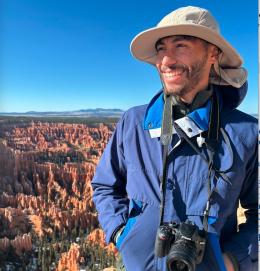
Gustavo Álvarez, Ph.D. Candidate in Mechanical Engineering
Holá, I was born in El Salvador and my family immigrated to the United States when I was two years old. Pursuing a higher education as a non-US citizen was fairly rough, yet my family and wife truly made it possible for me to graduate from UC Berkeley and work as a Design Engineer with EATON. I am currently a 5th year PhD Candidate in Mechanical Engineering and have worked in several mentoring and peer counseling programs; currently serving as a coordinator of the Consider Cornell program. I enjoy hiking, windsurfing, exploring wineries, soaking up the sun, and watching movies with our two cats (Dex and Miles). Contact: gaa78@cornell.edu
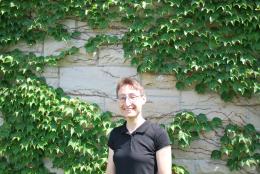
Chloé Arson, Civil and Environmental Engineering Professor
I earned all my degrees in France. Right after my Ph.D., I became a faculty member in the United States (Texas A&M 2009-2012, Georgia Tech 2012-2023, Cornell since 07/2023). So far, my leadership roles have included large multi-disciplinary research projects, an International Research Experience for Students program, and several Diversity, Equity and Inclusion initiatives. I am a strong advocate for the LGBTQ+ community in STEM. I enjoy engaging in dialectic debates, practicing outdoor sports, and watching French series. Contact: cfa36@cornell.edu
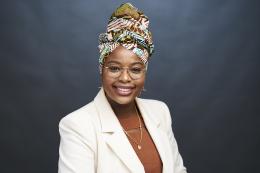
Cátia P. Dombaxe, Ph.D. Candidate in Biomedical Engineering
Cátia P. Dombaxe was born and raised in Angola. She is a biomedical engineering Ph.D. candidate whose research focuses on tissue regeneration and functional recovery after spinal cord injury. She founded STEAMpact Foundation, aiding STEM education worldwide. Dombaxe is passionate about STEM education and photography, and she aims to empower young minds and women around the globe. Contact: cpd57@cornell.edu
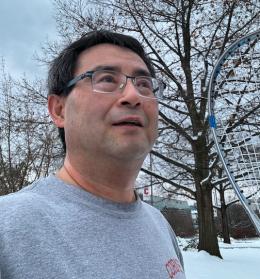
Oliver Gao, Civil and Environmental Engineering Professor
Growing up and spending my memorable childhood time with my grandparents feeding and playing with animals (sheep, pigs, cows, horses, and dogs of course) on a farm in the remote Northwestern China, I’ve always loved nature and cared about keeping our nature natural and sustainable. This got me into studies of civil and environmental systems and to my research and teaching today: systems engineering and integrative solutions for smart cities and healthy communities. I served as Editor-in-Chief of the International leading journal in my field: Transportation Research Part D--Transport and Environment, and led the US DOT Center for Transportation, Environment, and Community Health (CTECH). I love playing as well, with friends, children, pets, and by myself. Playing is good for your body, mind, and work. Contact: hg55@cornell.edu
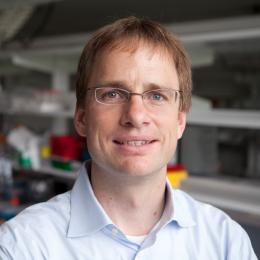
Jan Lammerding, Biomedical Engineering Professor
Jan grew up in Germany and completed a ‘Diplom Ingenieur’ degree (comparable to a Master’s degree) in mechanical engineering in Germany, a Bachelor of Engineering (BE) degree at the Thayer School of Engineering at Dartmouth College, NH, and a PhD in Biological Engineering at MIT. Jan started his academic career as an Instructor and subsequently Assistant Professor at Harvard Medical School/Brigham and Women’s Hospital in Boston, MA, while also serving as a Lecturer in Biological Engineering at MIT for three years. Jan was recruited to Cornell University in 2011, where he is now a Professor in the Meinig School of Biomedical Engineering and the Weill Institute for Cell and Molecular Biology. Jan served for 5 years as the Director of Graduate Studies in the BME graduate field, is a member of the Graduate School General Committee, and has served as faculty mentor for junior investigators through the Cornell FIRST program, the American Society for Cell Biology (ASCB) FRED and MOSAIC programs, and other programs. Jan has received multiple awards for his mentoring and teaching, including the Cornell Graduate and Professional Student Assembly's Faculty Teaching, Advising, and Mentorship Award, the College of Engineering EPICC Award for Excellence in Service and Research, the College of Engineering Canaan Family Award for and Excellence in Academic Advising. Jan is a Fellow of the Biomedical Engineering Society (BMES), the American Society for Cell Biology (ASCB), and the American Institute for Medical and Biological Engineering (AIMBE). Contact: jan.lammerding@cornell.edu
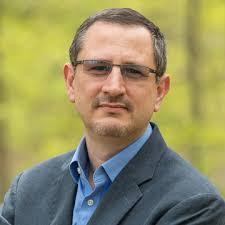
José F. Martínez, Lee Teng-hui Professor and Sr. Associate Dean for Diversity & Academic Affairs
I grew up in Spain and came to the United States to pursue a PhD at the University of Illinois at Urbana-Champaign. I've since been a professor of electrical and computer engineering (over twenty years and counting). I've served on the executive leadership of several research centers and as the senior associate dean for diversity and academic affairs in the college. I enjoy spending time with my family and our dog, cooking, car racing, and biking. Contact: Martinez@cornell.edu
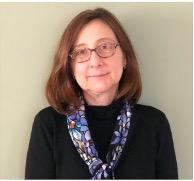
Lois Pollack, John Edson Sweet Professor of Engineering and Associate Dean for Research and Graduate Studies
I'm a native New Yorker and lived for many years in New England. I earned a PhD in condensed matter physics from MIT and came to Cornell to join the Low Temperature Physics group as a postdoc. After several fun years in the MicroKelvin lab, I decided to apply my experimental skills to a completely different research area: biophysics. In 2000 I joined the faculty in AEP. I've held leadership positions including director of undergraduate studies and director of AEP, and, most recently, associate dean for research and graduate studies in the College of Engineering. My current favorite hobby is playing in the amazing second violin section of the Ithaca Community Orchestra. Contact: lp26@cornell.edu
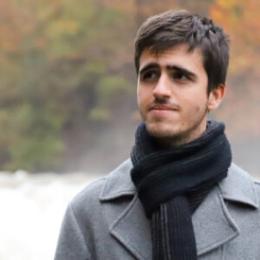
Cecilio C. Tamarit, Ph.D. Candidate in Electrical and Computer Engineering
I grew up in Spain and came to the United States to pursue a Ph.D. in Electrical and Computer Engineering at Cornell. My research focus is at the intersection of computer architecture and bioinformatics. In my free time, I enjoy learning about new things, like languages, and honestly all sorts of rabbit holes. I’m also an avid reader and, most importantly, I talk to my plants. Feel free to ask me about that! Contact: ct652@cornell.edu

